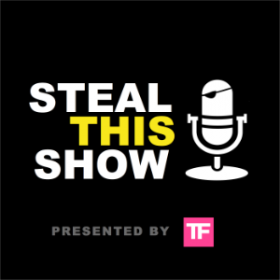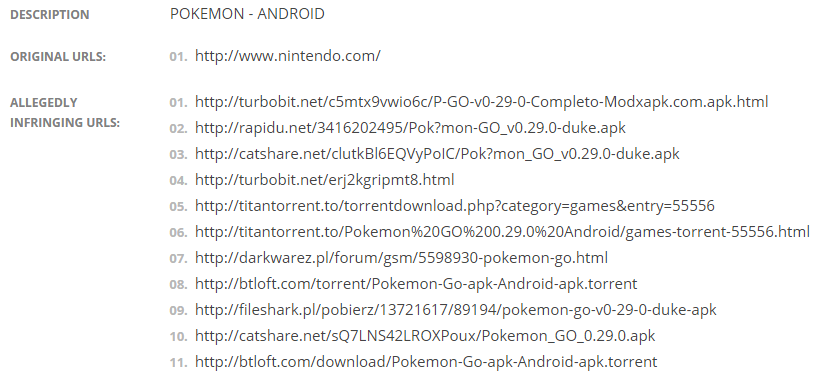BitTorrent Users Present a Goldmine of Marketing Opportunities
samedi 16 juillet 2016 à 11:55 After years of aggressive litigation against hundreds of thousands of file-sharers, by now the message should be sinking in. Peer-to-peer networks, BitTorrent included, are very public and anyone with the know-how can look in.
After years of aggressive litigation against hundreds of thousands of file-sharers, by now the message should be sinking in. Peer-to-peer networks, BitTorrent included, are very public and anyone with the know-how can look in.
Commonly, most of the people doing the monitoring have anti-piracy motives. Some aim to assess how much business may or may not be disappearing due to unauthorized sharing. Others spy with the sole intention of extracting cash settlements from users. US-based Peerlogix has a different agenda.
“We formed the company in 2013 out of a need of independent film studios. The types you see with $100k to maybe $1M budgets. We wanted to show them how to sell their films better,” says Peerlogix CEO and Co-founder William Gorfein.
With no chance of a Netflix deal, Gorfein says these studios often relied on sales to foreign countries that had a demand for American films.
“The problem is, these guys are artists, not analytics pros. Where would the movie be popular? Germany? South Korea? Because these guys typically didn’t have a clue, we felt there would be room for us to step in. We’d be the analysis side,” he explains.
“A film would be released, we could see the countries it’s popular in, and we’d then make introductions to key people in international markets to help broker film distribution deals. That was the idea at least, and our business model was to make money on the analytics.”
In 2014, Peerlogix became a measurement company, similar to Nielsen and comScore, but one gathering data from BitTorrent networks, the only fully international means to obtain video and music content online.
“Going to plan a new tour for an up and coming artist? Let us use this information together to help plan the cities the artist should be in. Trying to produce and finance a movie for international markets? Let’s finally use this activity to see which A and B list actors are popular in foreign markets,” Gorfein says.
In the music sector, Peerlogix has undertaken digital advertising projects for music festivals, gathering consumption data from torrent swarms to improve sales.
“Our goal is to show artists that there’s an entire segment of fans they’re not reaching. That the demographics look great, and that extra tickets and merchandise can be sold as a result of reaching them,” Gorfein explains.
“Your YouTube efforts are garnering X ROI, your social media efforts are giving you Y ROI – but how about the fans on torrents? There are millions, so we’ve been showing artists that there’s an equivalent ROI that can be realized from torrenters (without lawsuits!) and that it’s a necessary strategy to incorporate.”
For those more interested in the mechanics, Peerlogix told us that they’re close to being able to monitor every publicly available torrent.
“As far as protocols go, this includes conventional tracker servers, DHT (and subsequent magnet links), and Peer Exchange (PEX). DHT, by and large, makes up the bulk of the incoming data we collect,” Gorfein says.
“The conventional tracker servers were the simplest to track and mine. We were able to get that ability launched and running after our first few months and with relative ease. DHT is far trickier.”
Once harvested, the data is crunched and shared with third party companies, typically agencies who target individuals with advertising on multiple platforms.
“Does a consumer products company want to advertise to all viewers of Modern Family on ABC? If so, they will need to incorporate the 20% of the viewers that choose to do so via torrents, and that’s where we come in,” Gorfein says.
In order to add value to their service, Peerlogix works with other companies to augment harvested torrent information with demographic and behavioral data. That has provided some valuable insights into the nature of BitTorrent users.
“A eureka moment occurred when we saw that the demographics behind torrent households are borderline incredible – well educated, large discretionary dollars to spend and tech-savvy,” Gorfein says.
“Did you know that homes watching Real Housewives on torrent also have high affinities for fishing? Or that downloaders of Tomb Raider have a 3.3x greater likelihood of watching Game of Thrones? Or that these same Tomb Raider players love the X-Men and Hunger Games series? Me neither but the numbers speak for themselves,” he concludes.
Being monitored for advertising purposes is a daily occurrence for everyone using the Internet, whether that’s on the web or even BitTorrent. Not everyone likes it, but when a timely job opportunity lands on the mat due to the latter, things might not be so bad.
More information on Peerlogix can be found here.
Source: TF, for the latest info on copyright, file-sharing, torrent sites and ANONYMOUS VPN services.
 To avoid enforcement efforts, pirate sites often go to extremes to hide themselves from rightsholders and authorities.
To avoid enforcement efforts, pirate sites often go to extremes to hide themselves from rightsholders and authorities.  In this emergency episode of STEAL THIS SHOW,
In this emergency episode of STEAL THIS SHOW,  For many years, social networking giant vKontakte has been branded one of the world’s worst facilitators of copyright infringement.
For many years, social networking giant vKontakte has been branded one of the world’s worst facilitators of copyright infringement. The
The 
